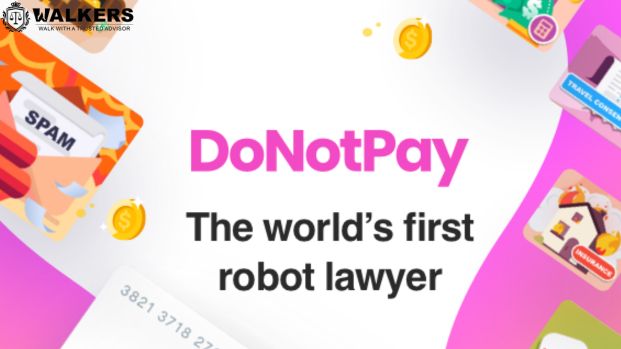


In a historic move, artificial intelligence is about to revolutionize the legal system by entering the realm of litigation. DoNotPay, a pioneering US-based startup, is set to introduce the world's first 'robot lawyer' in two upcoming speeding ticket cases. Powered by advanced artificial intelligence and running on smartphones, this innovative AI tool will provide legal advice to the defendants based on real-time analysis of court proceedings. By relaying instructions through an earpiece, the robot lawyer aims to help defendants respond appropriately to the charges against them, ushering in a new era of AI-assisted legal representation.
DoNotPay, the trailblazing US-based startup, is set to introduce a groundbreaking AI tool to the legal system, as reported in New Scientist. According to the plan, defendants will be equipped with Bluetooth-enabled earpieces, such as AirPods or hearing devices, which will connect them to the AI. The AI, using advanced language models, will provide real-time guidance and advice to the defendants during court proceedings. While the identity of the defendants and the location of the court cases have not been disclosed, DoNotPay CEO and founder, Joshua Browder, highlighted the enormous potential of AI in the legal field, describing it as the "perfect use case" for language models like GPT. He believes that this innovative technology can revolutionize the legal system and help bridge the gap between legal expertise and access to justice.
DoNotPay's CEO and founder, Joshua Browder, recently took to Twitter to respond to the US Supreme Court's ban on electronic devices during court sessions. In a tweet, Browder announced that his company would pay $1 million to any lawyer or individual with an upcoming case in front of the Supreme Court to wear AirPods and allow the robot lawyer to argue the case by repeating its instructions. While the startup has upcoming cases in municipal traffic court next month, Browder explained that this offer was aimed at silencing critics who claim that traffic court is too simple for GPT. He stressed that the offer is contingent on a formal agreement and strict adherence to all rules and regulations. This bold move by DoNotPay highlights the growing role of AI in the legal system and the potential for technology to transform the way legal services are delivered.
TAGS: Legal Expert System Intelligent Legal Seach Engine Contract Review Automation E-discovery Legal Analytics Legal Document Generation Case Prediction Legal Chatbot Virtual Legal Assistant Legal Research Optimization